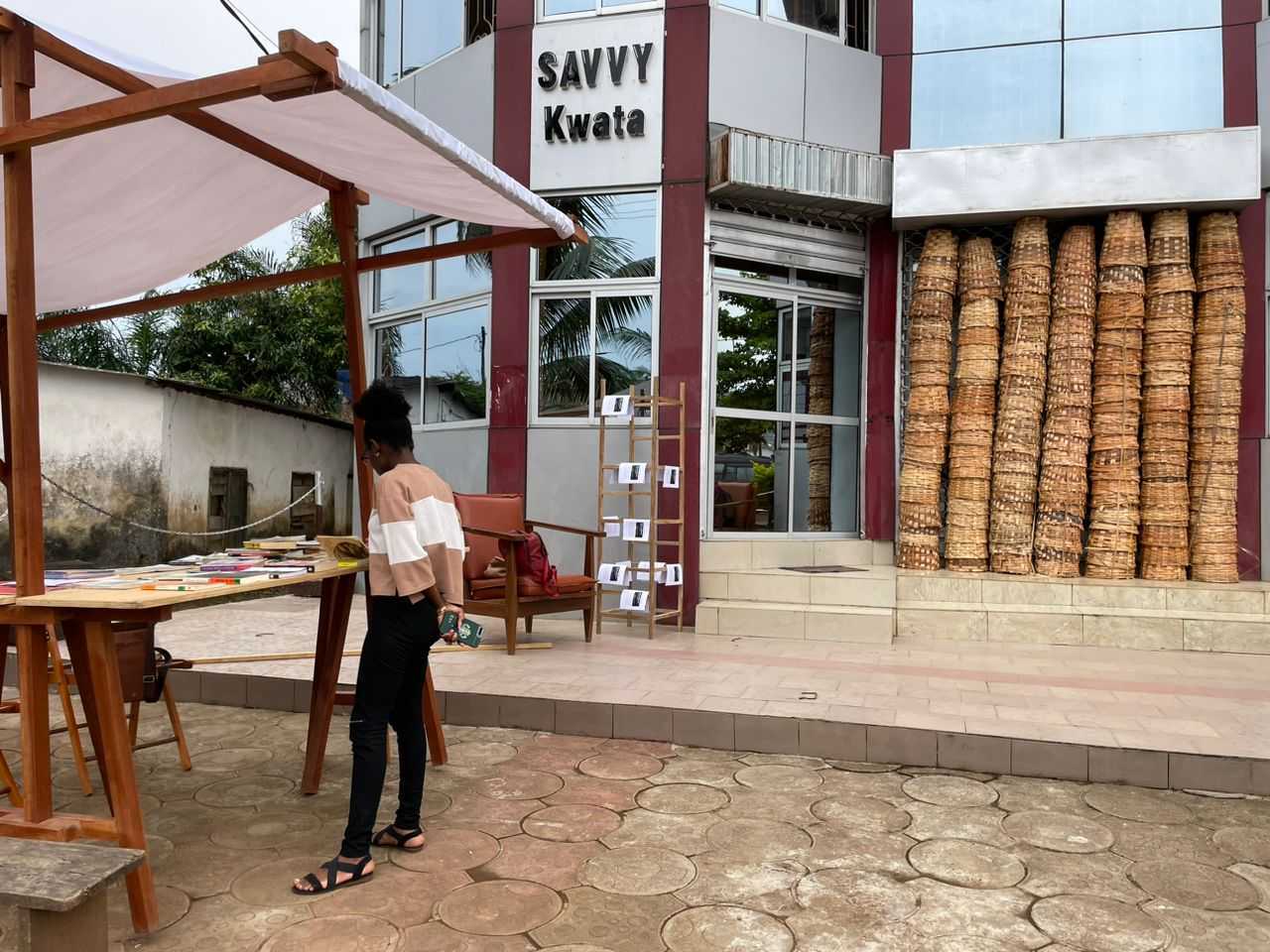Library of Lost and Found
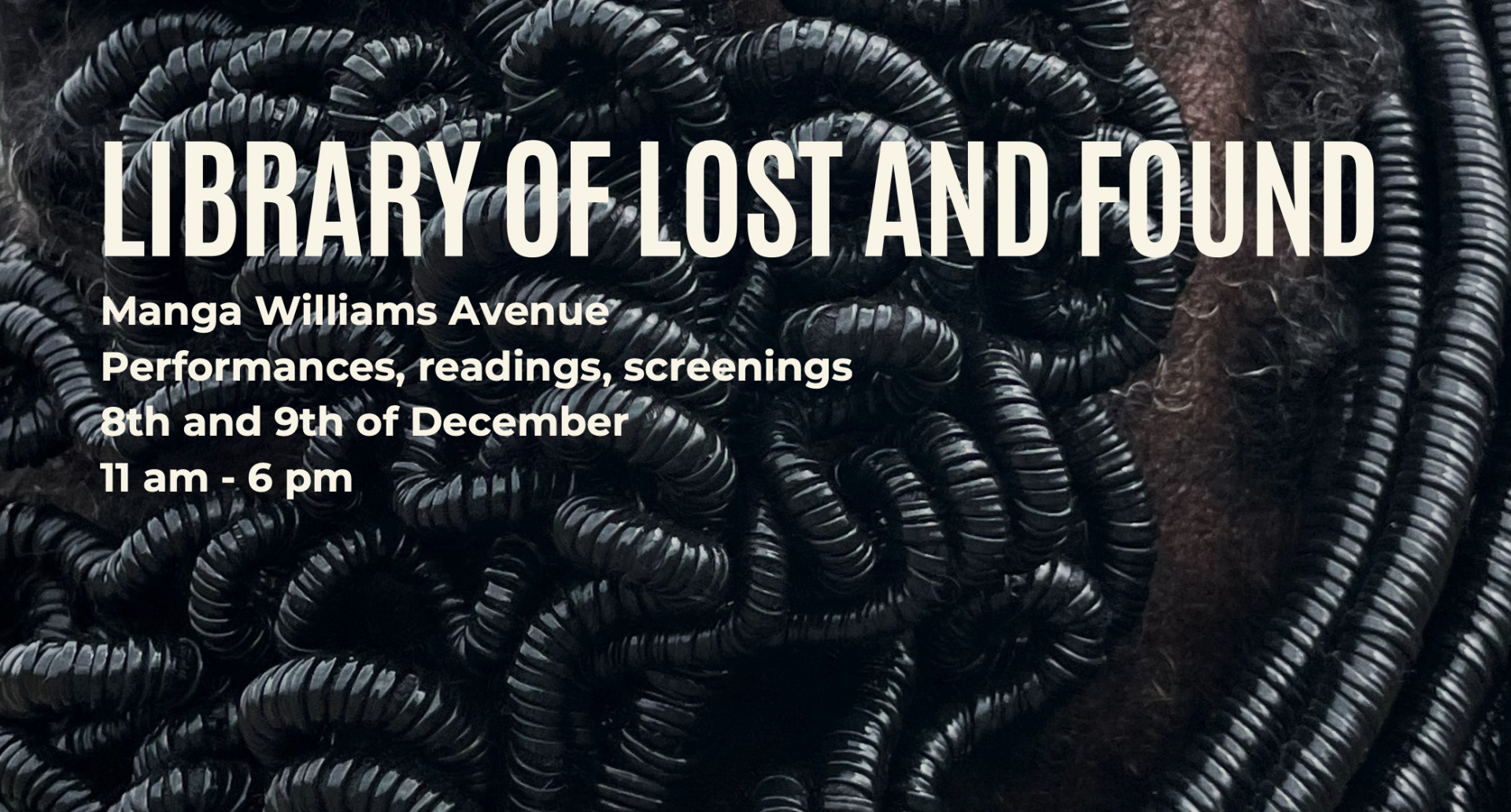
Opening of SAVVY Kwata Limbe
08.–09.12.2023
At Manga Williams Avenue, Limbe, Cameroon
We are more than excited to open the SAVVY Kwata in Limbe, Cameroon, with the opening celebration Library of Lost and Found. As an archival expansion and reorientation, it aims to gather the works of the published and unpublished, written and spoken, danced and sung thoughts of African authors. Archives and libraries can be violent places of malevolent categorization, imperial fetishization and hegemonic dissemination; this library is not that. We aim to provide a rich space for knowledge to be tended to, expanded upon and celebrated, in and with collective jubilation. This is a house for fading tales to regain their vibrance, a place for narrative arcs of indigenous tongues to be emboldened, a space for stories to flourish beyond the spine of a book and the bounds of ‘beginning’ and ‘end’. The Library of Lost and Found may be best described as a community garden holding an ecosystem of epistemological and methodological diversity which once struggled to find soil soft enough to take deeper root. This is that soil. This is that softness.
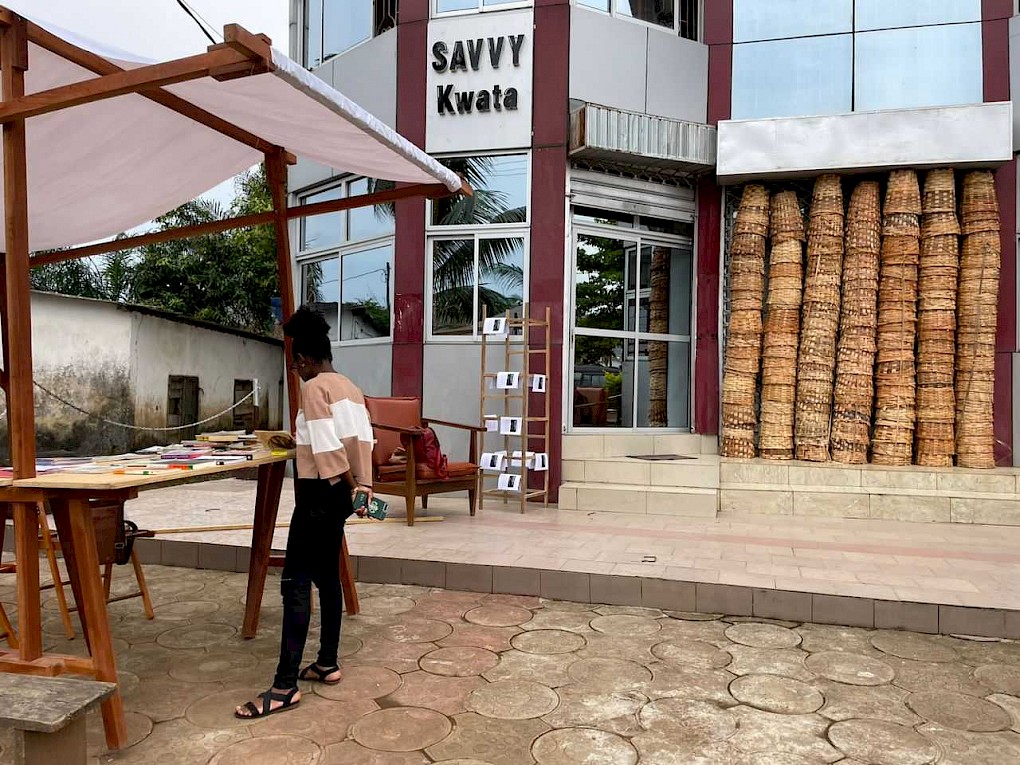
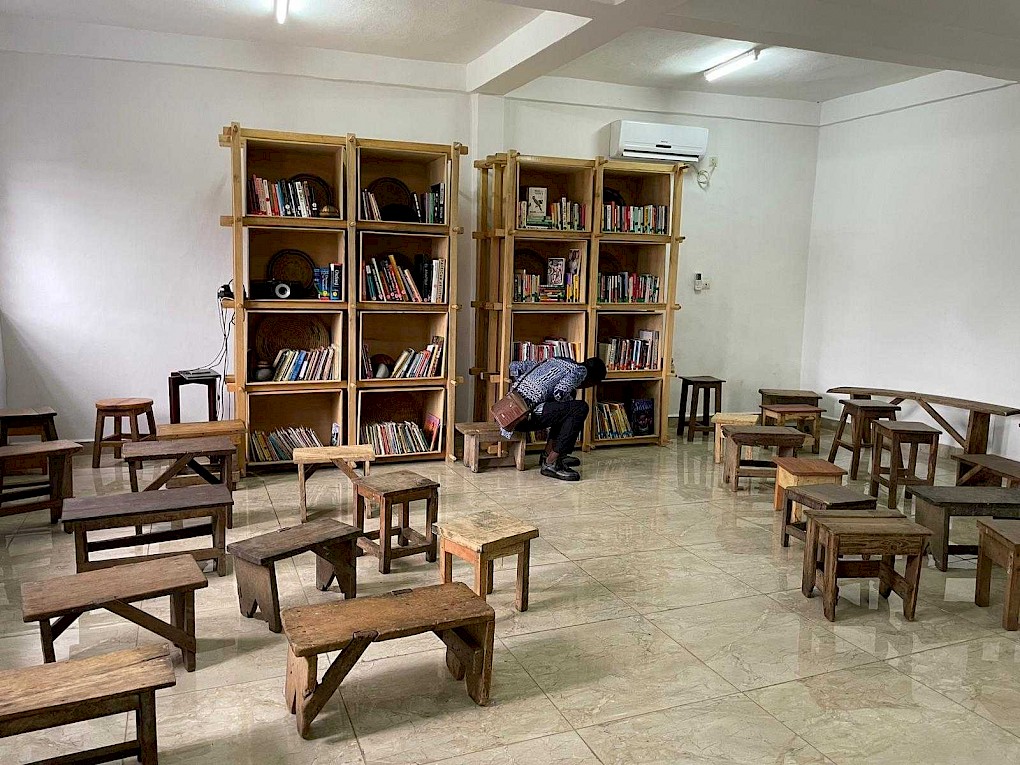
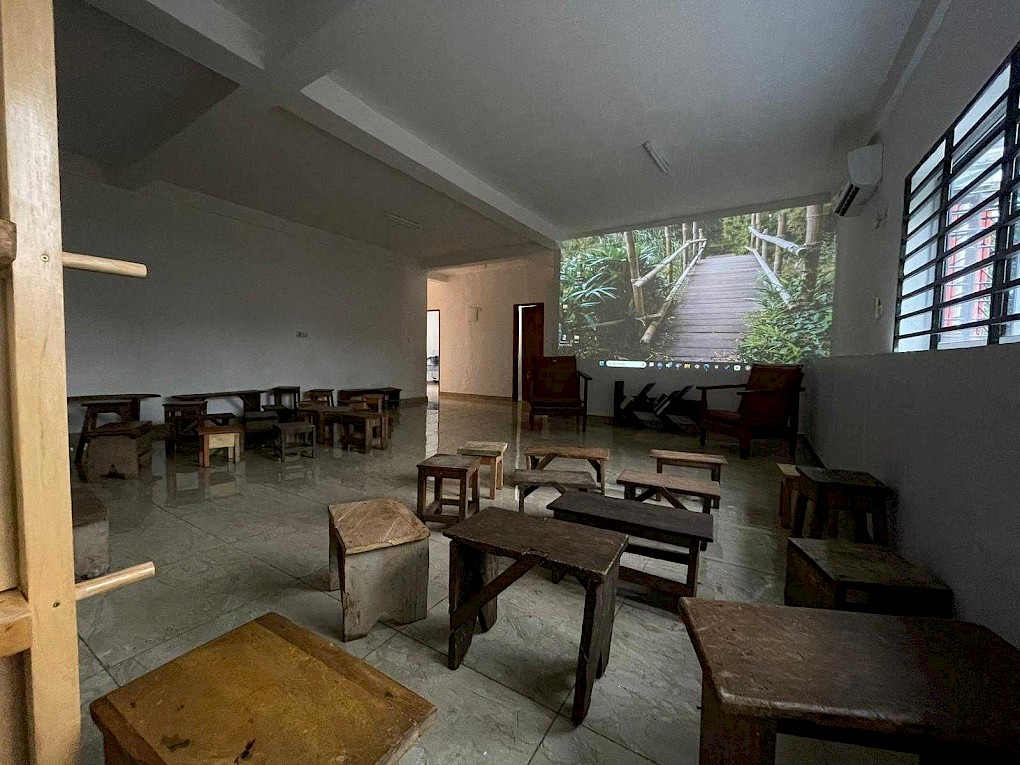
In this archival endeavor we collect for the collective, we gather for a gathering, and we search and find to be sought out and found. We call upon everyone to expand on what we have previously understood to occupy the role of the “author” and to re-shift our collective focus onto the varied forms of knowledge preservation and transmission which had thrived for generations before their eventual subjugation. Might there be space for others on the bench upon which the African “author” sits?
It is essential that, while we collectively sense the importance of the need to focus on African authorship on the African continent, we cannot ignore the irony as it often shows a hidden truth. The written form is a method which has been assigned to western culture, often on the part of Africans, but it is a form that has long been embedded in our society. Ours is home to the oldest and largest collections of ancient writing systems as well as the world’s first identifiable proto-writing. Writing is a method which has had differing degrees of importance for different generations of Africans and its relevance for this generation is a subject of study at SAVVY Kwata.
The period of colonization, often marked by the occupation of most of the continent of Africa by the imperial governments of Europe and in pursuit of wealth and racial domination is an obvious marker, yet the post-independence period of the 50s and 60s provided Africans with a great number of writers, poets, novelists, archivists and theorists – authors who have necessarily complicated what Europe preferred to label as a momentary phenomenon – locked in time. We look towards our own writers to help us understand our history not simply in an effort to reclaim narrative power from the hands of the oppressors, but also to find ourselves beyond the continuous hold of a continental trauma.
Who then are these authors? Our very understanding of authorship must also be centered around a question of legibility. For some, there is a clear legibility in Frantz Fanon, who alerted us in his seminal work The Wretched of the Earth, of the French response to the situation in Algeria and of Europe’s increasing need to shape the decolonizing process. “Quick, let's decolonize. Let's decolonize the Congo before it turns into another Algeria. Let's vote a blueprint for Africa, let's create the Communaute for Africa, let's modernize it but for God's sake let's decolonize, let's decolonize.” [2] Chinua Achebe too was prescient in his suspicion of the organized nature of the handover of government as he pointed out that “The British clearly had a well-thought-out exit strategy, with handover plans in place long before we noticed.” [3] If Chinua Achebe, the great novelist of the “post-independence” period had not noticed, does that automatically mean that no one else had? We are fortunate however that while the great writers of Africa can help us in our quest to understand ourselves and our history, we are also blessed with a wealth of storytellers that speak with different legibilities. In reshifting our collective focus to the literary gifts that Cameroon and the African world has left and continues to grant us, it is vital that we also look beyond those who have mastered the written form. It is within these other articulations of knowledge which are transmitted through cultural and traditional practices that we can begin to make sense of who we are, and perhaps even where we are going. We must make more room on that bench upon which our African author sits.
We are honoured to welcome you to SAVVY Kwata’s inaugural opening of the Library of Lost and Found.
Support SAVVY Kwata is generously supported be the Open Society Foundation.
Photos Grace Dorothée Tong
“Ancient African Writing: Ancient Writing, Ancient Writing Systems, Ancient African Scripts.” TaNeter.org, http://www.taneter.org/writing.html (accessed 6 December 2023).
Frantz Fanon. "On Violence", The Wretched of the Earth, 1961.
Chinua Achebe. There Was A Country: A Personal History Of Biafra, 2012

